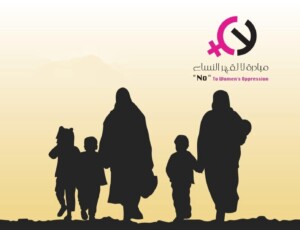West Darfur tribal leaders sign accord to end hostilities
On Saturday, West Darfur witnessed the signing of agreements to stop hostilities between Arab and Masalit tribes in El Geneina locality, and the Rizeigat and Iringa tribes in Sirba locality, in the presence of Gen Mohamed Hamdan Dagalo ‘Hemeti’, Deputy Chairman of the Sovereignty Council and Commander-in-Chief of the Rapid Support Forces. The Darfur Bar Association has dismissed the conference as “mere political demonstrations that encourage impunity in the absence of the Rule of Law”.
 West Darfur tribal leaders - with Hemeti centre rear - at the signing in El Geneina (Photo: Supplied)
West Darfur tribal leaders - with Hemeti centre rear - at the signing in El Geneina (Photo: Supplied)
On Saturday, West Darfur witnessed the signing of agreements to stop hostilities between Arab and Masalit tribes in El Geneina locality, and the Rizeigat and Iringa tribes in Sirba locality, in the presence of Gen Mohamed Hamdan Dagalo ‘Hemeti’, Deputy Chairman of the Sovereignty Council and Commander-in-Chief of the Rapid Support Forces. The Darfur Bar Association has dismissed the conference as “mere political demonstrations that encourage impunity in the absence of the Rule of Law”.
The document on cessation of hostilities and peaceful coexistence between Masalit and Arab tribes, consisting of 13 points, stipulated the formation of a joint mechanism between the two sides, headed in turns by leaders of both tribes and a commitment not to protect criminals within the tribes and to report them, as well as a commitment to build confidence.
The document called on the government to extend the Rule of Law.
Hemeti said during his address to the signing ceremony in El Geneina that the government issued a decision not to allow native administration leaders (tribal leaders) to leave their places without the prior permission of the authorities.
He said that the coming days will witness the arrival of joint forces to join the forces in the state to secure the agricultural season, villages, and the camps for the displaced.
Hemeti described what is happening in Darfur as “deliberate sabotage, not far from what is happening in Khartoum”.
In his address to the signing ceremony of the agreement to stop hostilities between Rizeigat and Iringa in Sirba in West Darfur, he accused unidentified parties of aiming to undermine peace, bring Darfur back to the square of war, and dismantle its social fabric.
“Much of what is happening here, is run by the same rooms messing with the scene in Khartoum, which he said are pursuing their own narrow self-interests,” he said.
Masar Abdelrahman Aseel, the signatory on behalf of the Rizeigat tribe, stated that both sides had settled “their differences in good faith”, and that it was “all possible due to the RSF’s efforts”.
Darfur Bar Association
The Darfur Bar Association (DBA) dismissed the tribal reconciliation conferences in West Darfur as “mere political demonstrations that encourage impunity in the absence of the Rule of Law”.
These conferences in the past “failed to stop the widespread tribal wars and disputes that often arise as a result of ordinary disputes between individuals. Tribes are then involved in them and all kinds of weapons which the state does not even possess are used in them,” the Bar argued in a press statement yesterday.
“Experiences have proven that peace conferences and agreements on the payment of blood money of which civil administration leaders take a significant percentage, weakens the civil state, the Rule of Law, and the prestige of the state, and encourages the continuation of crimes, human rights violations, and homicide,” the DBA stated.
The Native Administration was instituted by British colonial authorities seeking a pragmatic system of governance that allowed for effective control with limited investment and oversight by the state. The Native Administration also took on new responsibilities for executing policies, collecting taxes, and mobilising labour on behalf of the central government. According to the Darfur Bar Association (DBA), the Native Administration during the 30-year rule of dictator Omar Al Bashir did not represent the real local leaders. “It was only a tool used by ousted President Omar Al Bashir until his last days in power to prevent the escalation of the uprising.”











 and then
and then